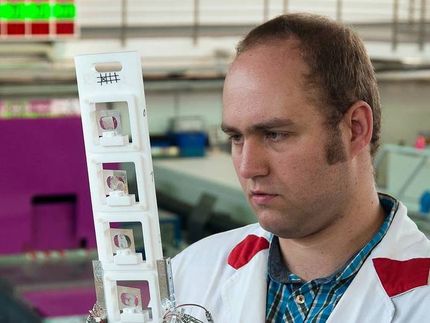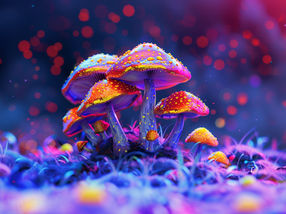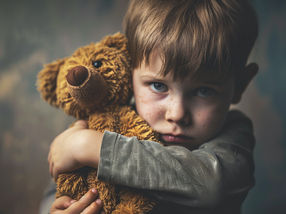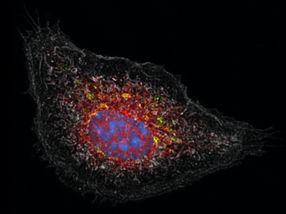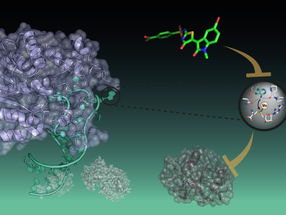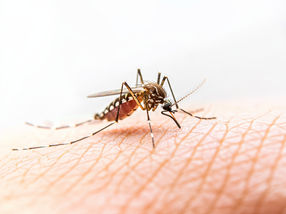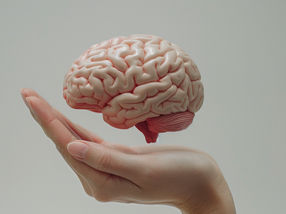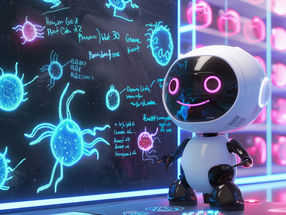Lithium safe, effective for children with bipolar disorder
A multicenter study of young patients with bipolar disorder provides what may be the most scientifically rigorous demonstration to date that lithium can also be safe and effective for children suffering from it.
The study, led by a researcher at the Johns Hopkins Children's Center affirms what clinicians who prescribe this drug have observed for years and suggests that doctors can now more confidently add lithium to the armamentarium of available treatments for this vulnerable population - at least in the short term, the authors say.
Lithium is one of the oldest drugs for bipolar disorder, a chronic brain condition marked by spontaneous, seesawing bouts of abnormally high moods and depression. The drug's ability to stabilize mood extremes has been well-established in adults. However, researchers say, although it can also be prescribed for children and teenagers, it has previously not been seriously tested in young people for safety and effectiveness.
"Lithium is the grandfather of all treatments for bipolar disorder, but it has never been rigorously studied in children," says Robert Findling, M.D., M.B.A., a professor of psychiatry and behavioral sciences at the Johns Hopkins University School of Medicine and director of child and adolescent psychiatry at the Johns Hopkins Children's Center. Findling initiated the work while director of child and adolescent psychiatry at Case Western Reserve University School of Medicine.
To test whether lithium is safe and as effective at treating bipolar disorder for children as it is for adults, Findling and his colleagues performed a randomized, placebo-controlled prospective study involving 81 patients seen at nine academic medical centers across the United States. The participants, split roughly equally between sexes, ranged in age from 7 to 17 and had all been diagnosed with bipolar disorder.
After undergoing a "washout" period for those already taking ineffective medication for this condition, 53 children started a regimen of lithium at a standard dose, then gradually increased to a maximum tolerated dose over the next eight weeks if mood symptoms weren't controlled. The remaining 28 patients received placebo.
At weekly visits for the first four weeks, and then every other week for the remainder of the study period, patients' symptoms were assessed using a survey called the Young Mania Rating Scale, along with other standard assessment tools for bipolar disorder symptoms and therapies. Patients were also questioned about side effects and given a physical exam, including a weight check.
Results showed that the patients on lithium experienced far more significant improvement in their symptoms over eight weeks compared with those on the placebo. Some 47 percent of those on lithium scored in the range of "very much improved" or "much improved" on the Clinical Global Impressions Scale, a rating system commonly used to assess the efficacy of treatments in patients with mental disorders, compared to 21 percent of those on the placebo.
Additionally, those on lithium dropped nearly six more points on average in the 60-point YMRS. Unlike antipsychotic agents, such as risperidone or olanzapine, lithium treatment was not associated with significant weight gain, and none of the patients experienced serious side effects due to the lithium treatment.
Findling says the findings provide a scientific and reliable confirmation of lithium's efficacy and safety for children in the short term, offering evidence that doctors can use when deciding what medication to prescribe their pediatric patients with bipolar disorder. Further analyses are currently in progress to examine the long-term implications of lithium use, he adds. Areas of particular focus include evaluation of any potential side effects, such as weight gain, reduced kidney function or diminished thyroid function - all important considerations, as those with bipolar disorder may need a lifetime of medication and behavioral therapies.
Most read news
Topics
Organizations
Other news from the department science

Get the life science industry in your inbox
From now on, don't miss a thing: Our newsletter for biotechnology, pharma and life sciences brings you up to date every Tuesday and Thursday. The latest industry news, product highlights and innovations - compact and easy to understand in your inbox. Researched by us so you don't have to.
